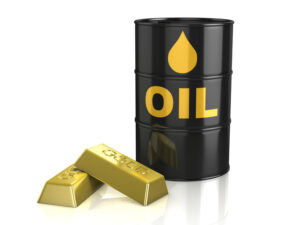If Russia Accepts Gold for Oil, Gold Price Doubles to $3,600, Says Credit Suisse’s Zoltan Pozsar
The comments below are an edited and abridged synopsis of an article by Anna Golubova
Credit Suisse’s Zoltan Pozsar said it is not unlikely that gold will double to $3,600 if Russia responds to the G7’s oil price cap by accepting gold for crude.
It is not that far-fetched, given some of the geopolitical and macroeconomic surprises from this year, Pozsar said. “Crazy? Yes. Improbable? No. This was a year of the unthinkable macro scenarios and the return of the statecraft as the dominant force driving monetary & fiscal decisions,” Pozsar wrote.
At current market prices, the cap of $60 per barrel for Russian oil equals the price of a gram of gold. The US would peg Russian exports at this price and Russia, in return, pegs it at a gram of gold. This would come at a time when the US is working to refill its strategic reserves with cheap petroleum.
In this example, the US dollar effectively gets revalued versus Russian oil. “But if the West is looking for a bargain, Russia can give one the West can’t refuse: A gram for more. If Russia countered the price peg of $60 with offering two barrels of oil at the peg for a gram of gold, gold prices double,” Pozsar said.
Russia would ensure that more oil goes to Europe than to the US through India. And gold going from $1,800 to $3,600 would increase the value of Russia’s gold reserves and its gold output at home and in Africa.
Gold doubling in price would be an issue for banks involved with futures markets, as most have assumed that governments won’t go back to paying for goods with commodities.
Banks active in the paper gold market would face a liquidity shortfall, as all banks active in commodities tend to be long OTC derivative receivables hedged with futures. That could complicate the coming year-end turn, as a sharp move in gold could force an unexpected mobilization of reserves and expansions in balance sheets (SLR) and risk-weighted assets.
A price cap on Russian seaborne oil recently came into effect. It is being enforced by the G7, the EU and Australia. Russia, the world’s 2nd-largest oil exporter, will not accept the price cap, even if it has to cut production.

